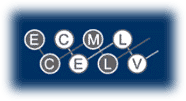
Developing Quality Assurance in Malta
Georgina Cachia
![]()
Context
Malta and Gozo, the smaller island, have a combined population of
350,000. Compulsory school age is 5 - 16 and the islands have approximately
84 primary schools and 30 secondary schools. They provide for pupils from
the ages of 3-16. 80% of the student population proceed to higher education.
As a measure of decentralisation, schools have received a devolved budget since 1992. This budget however does not cover salaries, nor the major refurbishment of buildings.
Teachers are deployed centrally according to the needs of the schools. Class population does not exceed 25 in the secondary schools and 30 in the primary sector. However, the ratio of teacher to students is much smaller than that. Students with special needs are integrated into the main stream, and they are assigned a facilitator - either on a one to one basis or one facilitator to be shared between two students. They follow a personal programme (an IEP).
We have a number of teachers employed in the primary schools as peripatetic teachers who visit schools regularly in connection with the teaching of Science, ICT, Music, Art, PE and Personal and Social Education.
Recent initiatives include subject co-ordinators and activity teachers in the primary schools. Activity teachers will be responsible for after school activities, which may also include homework. The secondary schools have subject co-ordinators ie Heads of Department for several subjects.
The teachers follow a four year course at the University where they read for a Batchelor of Education degree. Teachers can apply for the next grade after 10 years of teaching; whilst Deputy Head teachers can apply for headship after 4 years. To qualify for Headship one has to have a Diploma in School Management.
Current Practice in Quality Assurance in Schools
Also as part of the decentralisation schools have been empowered to
take responsibility for the quality of their provision.
The Scottish model was chosen in 1995 and since then all Headteachers, Deputy Headteacher, Subject Co-ordinators and Education Officers have been trained in school self-evaluation, review and school leadership by personnel from the Scottish Office.
School self-evaluation is about asking ourselves questions such as:
How are we doing in this school?
How are we doing in this classroom?
How are we doing in this department?
How are we doing in this team?
- This involves a broad view of performance across a number of key areas, namely: curriculum, attainment, learning and teaching, support for pupils, ethos, resources and management, leadership and quality assurance
- a closer look at specific areas viewed as successful or causing concern.
Each school produces its School Development Plan after conducting its self-evaluation against a set of Performance Quality Indicators and after consulting all the stake holders, namely teachers, parents and students.
A School Development Plan summaries the school's aims, provides its mission statement, and the result of its self-evaluative activities. It outlines the school's strategy for improvement, identifies priority projects and sets clear targets for action.
The SDP has three sections:
1. The aims
2. The audit (ie strengths/weaknesses and progress with previous plan) and
3. The action
Each target, criteria, timescale, implementation strategies and persons responsible are set.
Once the self-evaluation and the consultation are completed and the targets selected the school draws the plan together towards the end of the academic year, sometime between May and June. Each member of staff has a personal copy, and new members of staff are introduced to the current plan on the first day of the new academic year. Parents may ask for a copy of the SDP if they so wish. Some time in January/February schools hold a one day workshop to review their plan.
In 1997 the State introduced a Performance Management Programme for every civil servant in order to ensure accountability. A specific Performance Management Programme for teachers has been designed. This was introduced in primary schools this academic year. In this management programme the teacher sets herself/himself targets with performance measured against school objectives. The teacher also identifies what training he/she requires and why. This is linked to the targets set. In another section of the Performance Management Programme the teacher records his/her self-assessment of actual performance in relation to targets. This is endorsed and reviewed by the Head or Deputy Head of the school.
Deputy Heads/Heads draw up their Performance Management Plan (PMP) in a way that it reflects the implementation and management of the SDP.
Every Headteacher submits a copy of the SDP to the Deputy Director (Operations) together with his/her PMP.
Support from the Education Division
The Education Division has six Directorates namely, The Operations, Curriculum Management, Students Services and International Relations, Information and Communication Technology, Planning and Development and the Department for Financial Administration.
The Operation Department is directly responsible for Quality Assurance in schools, whilst the other departments give their support and advice as required and requested by the schools,. The Planning and Development Department organises in-service courses as identified by the schools. Guidance on bullying, substance abuse and good behaviour have been published.
Future Developments
We have now come to a stage where schools are asking to have external reviews. The Operations Department Business Plan for this year includes the setting up of the Quality Assurance Unit. Two proposals have been made and discussions are currently going on. As a result of my attendance at this workshop I will gain more insight and experience of Quality Assurance, in order to be in a position to help in the setting up of this External Audit/Review Unit.
